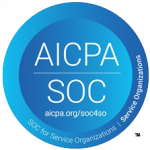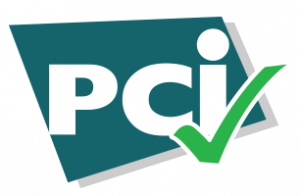According to a study conducted by the Consumer Financial Protection Bureau, healthcare debt is common, with 59% of respondents reporting they’ve been contacted by a creditor regarding healthcare debt. With healthcare debt typically not being a debt of choice, it is little wonder that more healthcare consumers find themselves in arrears when it comes to these unanticipated bills, leading healthcare providers themselves to face unique challenges in managing their outstanding accounts receivables, and wonder what they should do. Should they perform collections themselves or outsource these activities to an outside company to complete this task? While handing their own debt collection calls might seem like the easy choice, providers might be better off trusting their delinquent accounts to an outside company of professionals to perform their collections work for them.
How to Know Which Accounts Receive Priority

When dealing with outstanding balances, it’s often tempting to allocate your limited resources more toward the patients with the highest balance first; however, that’s not necessarily the most effective approach. Rather than pursuing quantity, healthcare professionals are better served focusing efforts on quality accounts that are more likely to produce a net return in contrast to the efforts expended. A key differentiator informing an effective collections approach is the ability to determine which patients have the highest probability of paying. Collecting balances from an identified segment of patients who are statistically more likely to pay is a better way to operate than spending valuable time attempting to collect a high balance from a patient who is unlikely to pay.
To determine the probability of a particular patient making a payment, collection professionals, whether in-house or outsourced, rely upon a “propensity to pay” measure to rank patient accounts for the most appropriate treatment efforts. While some insight can be gained from using the well-known FICO scores, provided by the major credit bureaus, many companies offer their own proprietary scoring models that aim to evaluate and prioritize overdue patients by gathering information from several sources, then use that data to inform decision-making. Professional revenue cycle management firms, like Revco Solutions, take a multifaceted approach to scoring patients, allowing us to collect debts more efficiently and effectively.
Prioritizing Accounts Without Using a Scoring Tool
Quality data is expensive. Some healthcare facilities don’t have access to scoring tools, so other factors need to be considered. It’s predictive to consider socioeconomic factors that affect a patient’s ability to pay, rather than rely on credit capacity. These factors include:
- Previous payment history: They should look into whether the patient has paid previous bills on time. This can give an idea about the patient’s willingness to pay any outstanding balance.
- Age of the bill: The older the account balance, the less likely the patient is to pay back the balance in full.
- Overall patient satisfaction: Patients who have a long-standing relationship with the healthcare facility and have had a great experience in the past are more likely to pay than those who have had issues in the past.
Contacting Delinquent Accounts
Reaching out to patients who have past-due accounts requires persistence. Companies should send letters, but also contact the patients directly on their mobile phones. These companies should also be aware of call monitor regulations and live-screen calls.
When to Use an Outside Company
According to the Commercial Collection Agencies of America, in just three months, the likelihood of collecting from a delinquent account drops to 68.9%. Sitting on unpaid invoices without dealing with them isn’t a profitable way to get the most out of your revenue cycle. If your healthcare organization has a significant amount of outstanding accounts receivable, and in light of widespread staffing shortages across all industries, there may come a time when it’s more cost-effective to use an outside collection agency to collect unpaid debts. Revco Solutions employs highly trained representatives who are kept current on the compliance issues that affect both the healthcare and collections industries, such as Regulation F, use the latest emerging technologies to communicate with patients and provide them a seamless experience, and our proprietary scoring model relies upon multiple high-quality data sources, designed and continually validated by in-house statisticians. Outsourcing your delinquent accounts to an agency like Revco Solutions will save your valuable time and produce much better results, since they specialize in providing this service and have made the investments to do so with the best resources available.
Healthcare organizations who want more assistance with overdue payments can reach out to Revco Solutions to enhance their revenue cycle management process.






